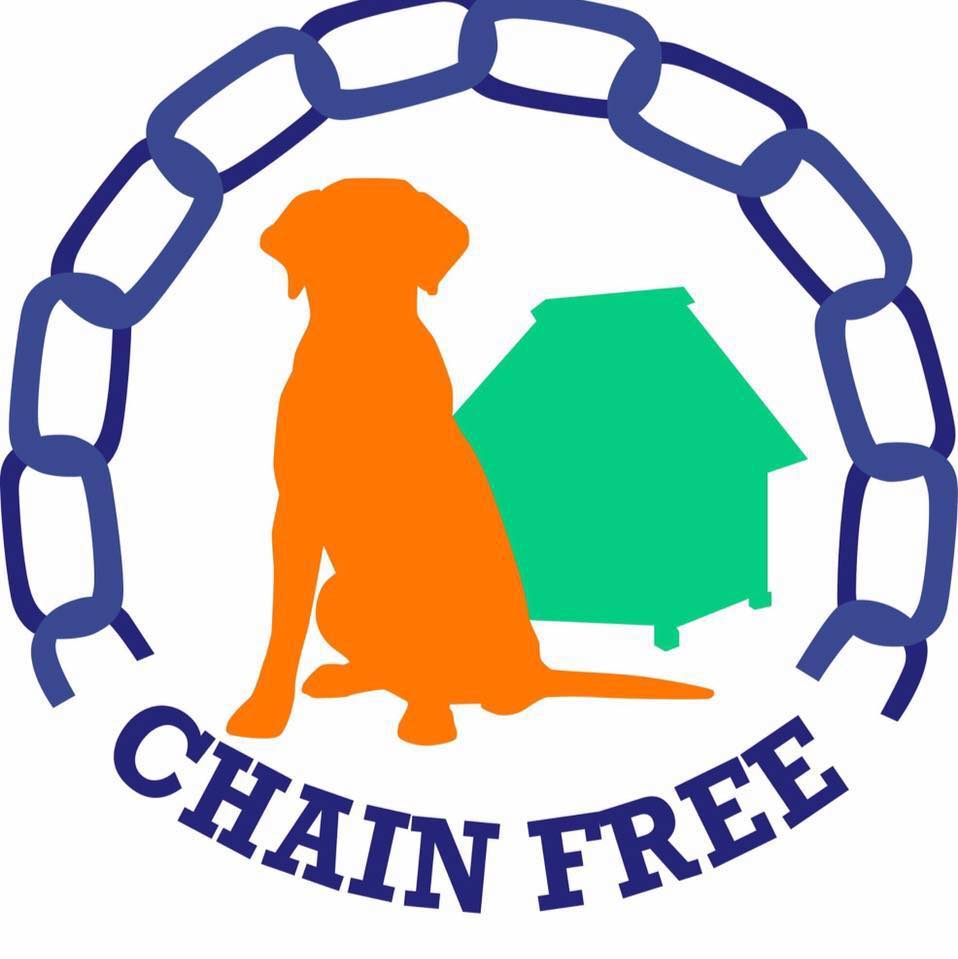
About Us
Chain Free Dogs is a community of volunteers serving as advocates for chained, tethered, penned and caged dogs in Johnson City, TN and nearby Washington County communities.
The mission of Chain Free Dogs is to relieve dogs of the extreme discomfort and crushing loneliness of life on a chain.
How We Help
For compassionate souls who agree to permanently release their dog from the chain (or other methods of extreme confinement), we provide free, non-judgemental assistance by building a donor funded fence.
2024 Accomplishments
Farewell 2024! What a busy and successful year it’s been. Lots of yards were fenced in and 23 previously chained dogs can now run loose and play in their yards, never to be chained again!
In 2014 we launched the Johnson City TN Chain Free Dogs movement. Since then, with the help and support of our caring donors and partners, we have put up 248 fenced enclosures, freeing a total of 361 dogs from bondage!
We are so blessed and thankful for our partners: Backyard Borders Fence Company LLC, Appalachian Highlands Humane Society, and Washington County TN Animal Shelter. Their support profoundly improves everyday life for our dog friends!
Friendly reminder about qualifications:
All dogs must be spayed or neutered.
Vaccines must be up to date.
Outside dogs must have a doghouse or shelter.
Dog’s owner must own the house, or, if renting, have permission letter from landlord.
Chain Free Dogs welcomes referrals for dogs in Washington County, and on a limited basis from other nearby cities.
Chaining Dogs is Cruel and Dangerous
Undeniably Cruel
- Dogs are naturally social beings with emotions and feelings, such as sadness and loneliness. They need interaction with humans and/or other animals.
- Intensive confinement or long-term restraint can severely damage a dog’s physical and psychological well-being.
- An otherwise friendly and docile dog, when kept continuously chained or intensively confined in any way, becomes neurotic, unhappy, anxious and often aggressive.
- Because their often neurotic behavior makes them difficult to approach, chained dogs are rarely given even minimal affection. They become “part of the scenery” and can be easily ignored by their owners.
- It is common for continuously chained/caged dogs to endure physical ailments. Their necks can become raw and sore and their collars can painfully grow into their skin.
- They are vulnerable to insect bites and parasites and are at high risk of entanglement, strangulation and harassment or attacks by other dogs, or people.
- These dogs often suffer from irregular feedings, overturned water bowls and inadequate veterinary care.
- Chained and confined dogs suffer horrendously in extreme temperatures. During cold, wet weather, they often have no access to shelter. In extreme heat, they may not receive adequate water or protection from the sun.
- These dogs often live a life in utter filth, as owners who chain their dogs are less likely to clean the area of confinement. The dog must eat and sleep in an area contaminated with urine and feces.
Undeniably Dangerous
- A dog who suffers long periods of confinement can become highly aggressive. This a high-risk factor in serious dog bites and attacks. Dogs unable to retreat from perceived or real threats can act out aggressively when approached.
- Dogs feel naturally protective of their territory; when confronted with a perceived threat, they respond according to their fight-or-flight instinct. A tied dog, unable to take flight, resorts to fight, attacking any unfamiliar animal or person who unwittingly wanders into his or her territory.
- Tragically, the victims of such attacks are often children who approach the dog unaware of the risks.
- A dog who escapes such restraint is likely to chase and attack unsuspecting passersby and pets because they have developed severe behavior problems from inhumane long-term, intensive confinement.
What We Require of Fence Recipients
- Your dog must be spayed or neutered.
- Your dog must be up to date on vaccinations.
- You must show that your dog will have adequate shelter or a dog house within the fence.
